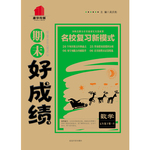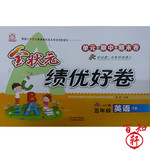题目内容
Dr. Julie Coulton, a British psychologist, focuses her research on the extraordinary function of the play in the physical and spiritual development of children and Martti Bergson from the University of Helsinki shows that playing outside, in the open air, contributes to a better development of the brain.
Thus parents must encourage their children to spend as much time as possible in the open air, and at the same time, to ask schools and kindergartens to assure the small a playground outside. Recent statistics (数据) and studies show an alarming increase of the number of hours spent by children in front of the TV and the computer and a decrease of the time spent outside.
As a consequence more and more children suffer from eye problems and have to wear glasses. Also the problem of fatness among children concerns many parents who don't know what to do anymore to make their children eat healthy and balanced.
Children need a space where to develop their creativity mid parents should encourage them all the time. Too many rules hold back the child's personality and creativity and prevent them to develop the desire to know, to find out, to learn.
If you tell your child so many times: "Don't do that, don't mess the room, don't go there ...", he will lose the desire to do something, anything. Parents must watch their children without suffocating (窒息) them. Should you consider they mustn't do that or this, you have to logically explain them your reasons and they will understand.
Through playing a child learns how to communicate, how to take decisions. Playing is connected to the intellectual, emotional and social progress of the child. Playing lets your children learn how to express his feelings.
1.What is worrying the scientists is that ______.
|
A.most parents pay no attention to their children's playing |
|
B.most schools and kindergartens have no playgrounds |
|
C.most parents encourage their children to watch TV or go surfing |
|
D.most children spend more time on TV or tile Internet than on playing outside |
2.Children who watch TV or surf the Internet too much may suffer all the following EXCEPT .
|
A.eye problems |
B.weight problems |
|
C.lack of creativity |
D.lack of interest in their lessons |
3.The author advises us ______.
|
A.to allow children to do whatever we want them to do |
|
B.never to forbid children to do anything they want to do |
|
C.to explain why when you don't let children do something |
|
D.to watch children playing anytime to ensure their safety |
4.Which would be a best title for this passage?
|
A.How to develop the brain of your children better |
|
B.Playing is good for your children in many aspects |
|
C.Teaching your children what and how to play |
|
D.Don't forbid your children to do anything |
1.D
2.D
3.C
4.B
【解析】文章讨论的是要给孩子更多的时间去玩,因为玩耍对孩子的发展很重要。
1.D 细节题。根据第二daunting后两行studies show an alarming increase of the number of hours spent by children in front of the TV and the computer and a decrease of the time spent outside.说明D项这正是科学及担心的问题。
2.D 细节题。在第三段中提及了AB两项,在第四段中提及了C项,D项文章没有涉及,故D符合要求。
3.C 细节题。根据倒数第二段最后一行you have to logically explain them your reasons and they will understand.说明C正确。
4.B主旨大意题。文章讨论的是要给孩子更多的时间去玩,因为玩耍对孩子的发展很重要。

 期末好成绩系列答案
期末好成绩系列答案 99加1领先期末特训卷系列答案
99加1领先期末特训卷系列答案 百强名校期末冲刺100分系列答案
百强名校期末冲刺100分系列答案 好成绩1加1期末冲刺100分系列答案
好成绩1加1期末冲刺100分系列答案 金状元绩优好卷系列答案
金状元绩优好卷系列答案Dr. Julie Coulton, a British psychologist, focuses her research on the extraordinary function of the play in the physical and spiritual development of children and Martti Bergson from the University of Helsinki shows that playing outside, in the open air, contributes to a better development of the brain.
Thus parents must encourage their children to spend as much time as possible in the open air, and at the same time, to ask schools and kindergartens to assure the small a playground outside. Recent statistics (数据) and studies show an alarming increase of the number of hours spent by children in front of the TV and the computer and a decrease of the time spent outside.
As a consequence more and more children suffer from eye problems and have to wear glasses. Also the problem of fatness among children concerns many parents who don't know what to do anymore to make their children eat healthy and balanced.
Children need a space where to develop their creativity mid parents should encourage them all the time. Too many rules hold back the child's personality and creativity and prevent them to develop the desire to know, to find out, to learn.
If you tell your child so many times: "Don't do that, don't mess the room, don't go there ...", he will lose the desire to do something, anything. Parents must watch their children without suffocating (窒息) them. Should you consider they mustn't do that or this, you have to logically explain them your reasons and they will understand.
Through playing a child learns how to communicate, how to take decisions. Playing is connected to the intellectual, emotional and social progress of the child. Playing lets your children learn how to express his feelings.
【小题1】What is worrying the scientists is that ______.
| A.most parents pay no attention to their children's playing |
| B.most schools and kindergartens have no playgrounds |
| C.most parents encourage their children to watch TV or go surfing |
| D.most children spend more time on TV or tile Internet than on playing outside |
| A.eye problems | B.weight problems |
| C.lack of creativity | D.lack of interest in their lessons |
| A.to allow children to do whatever we want them to do |
| B.never to forbid children to do anything they want to do |
| C.to explain why when you don't let children do something |
| D.to watch children playing anytime to ensure their safety |
| A.How to develop the brain of your children better |
| B.Playing is good for your children in many aspects |
| C.Teaching your children what and how to play |
| D.Don't forbid your children to do anything |
| 完形填空。 | ||||
| Bedtime stories are one of the delights of early childhood. But according to Dr.Julie Sprecadbury form Queensland University. parents should not 1 up reading to their children 2 they enter mary school. She says listening to.reading and discussing the stories help chidren's 3 . "My 4 indicates that once children can read themseives. most parents stop reading 5 them." Dr.Spreadbury says. " 6 may be at the end of Year I,which is far too 7 ." Dr.Spreadbury says 8 reading not only gives children a good start at school.but brings parents and their children closer. "This makes it 9 for then to open up and talk to parents about things that are worrying them,or things they are 10 in their everyday life." | ||||
|